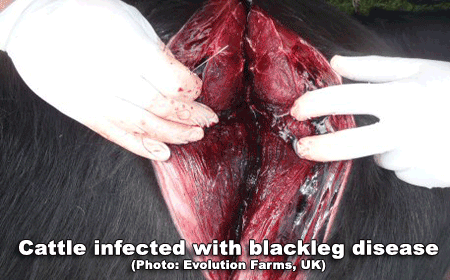BELIZE CITY, Fri. Mar. 11, 2016–Agricultural authorities are reporting an upsurge in two fatal cattle diseases – blackleg disease, which kills those infected with it within two days, and rabies, which causes death within 10 days. Dr. Miguel Depaz, director of the Animal Health Department at the Belize Agricultural Health Authority (BAHA), told Amandala that 16 of the 25 cattle deaths have been reported from Toledo and the deaths in that district have all been due to blackleg disease, which was determined through clinical diagnosis of dead animals. He said that infected cattle, which have been showing up in every district except the Belize and the Stann Creek districts, were disposed of.
Laboratory tests have confirmed bovine rabies in four cases in Orange Walk and Cayo.
The diseases are observed every year, usually at the start of the year, but this year, they are more pronounced, Depaz told us.
A mature bull sells for about $3 a pound and a 1,000-pound bull would therefore yield $3,000. In all, the losses have amounted to tens of thousands of dollars.
Depaz noted that blackleg disease cannot be transmitted to humans. It is a bacterial disease that can be prevented, through vaccination, but farmers tend not to vaccinate until there is an outbreak, he said.
He noted that rabies can be transmitted from rabid cattle if the person handling the sick animal gets exposed to its saliva.
“Again, this is a disease that can be prevented,” he said, pointing again to vaccines available on the market.
The rabies vaccines and blackleg vaccines last for a year. In the case of blackleg disease, which is most fatal to calves, the vaccination is administered early and a booster a month later. The vaccine is administered again the following year.
Depaz said that the vaccines against the diseases cost between $2 (for blackleg) to $5 (for rabies), based on the type of vaccine being purchased and the location from which it is bought.
Depaz said that climate could be a contributing factor to the rise in blackleg disease in southern Belize. One possibility is the flooding which took place last year. If cattle are immersed in flood waters for an extended period of time, they could become infected by one of the seven soil bacteria which are said to cause the disease. It is more likely, though, that tilling of the soil for planting has unleashed the harmful bacteria.
Depaz advises farmers with infected cattle to call the authorities to deal with it. BAHA’s Animal Health Central Office can be reached at 824-4899.

